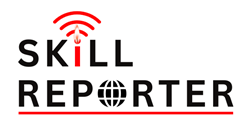New Delhi : An initiative by the Centre to get experts to produce engineering and management textbooks in Indian languages has drawn very poor response so far.
The All India Council of Technical Education (AICTE) had last month announced a scheme offering up to Rs 50,000 to experts who translate or write engineering and management textbooks in any of the 22 scheduled Indian languages.
Teachers from AICTE-approved institutions and authors with at least five years’ teaching experience in the subject were asked to apply by January 10.
Sources in the AICTE, the technical education regulator, said no proposal had been received by January 10.
“A handful of applications may have come after that, I’m not sure, but it seems the deadline may have to be extended. The faculty members need to be motivated to write,” a senior AICTE official said.
A few authors who have already been writing technical textbooks in Hindi for the past few years are expected to continue, the official said. He confirmed that even these writers hadn’t applied, at least by January 10.
“Most of the teachers might be unaware of the scheme since few of them pro-actively check the AICTE website for updates,” suggested Chandrakant Sahoo, management teacher at the Madanpalle Institute of Technology and Sciences, a private college in Chittoor district of Andhra Pradesh.
He added that the remuneration was not attractive enough for a book writer. “Writing a technical book in a regional language is a Herculean job because there is no corresponding word for many technical terms,” Sahoo said.
Noted academic N.R. Madhava Menon, the founder vice-chancellor of the West Bengal National University of Juridical Sciences, welcomed the AICTE effort saying it would help students from the villages. He blamed the poor response to the scheme on the lack of regional language skills among most experts on technical subjects.
“Experts in the regional languages do not know the technical subjects; the subject experts lack the competence to write in the regional languages,” Menon said.
All the 3,500 engineering colleges and the similar number of management institutions offer their programmes in English. The Hindi books that exist are not part of the official curricula but can help some students get a better grasp of the subject.
The new scheme is intended to enable the institutions to offer courses in the regional languages.
“Lack of textbooks has always been a deterrent to offering courses in Indian languages. Once the books are available, students will be able to pursue the courses in their own language,” an AICTE official said.
On January 8, 2015, Prime Minister Narendra Modi had endorsed a suggestion sent by Manju from Mysore, tweeting: “Manju’s point on imparting technical education in local languages merits deeper consideration.”
Seven in 10 school children in India study in state government schools, where the medium of instruction is the local language.
Note: News shared for public awareness with reference from the information provided at online news portals.


